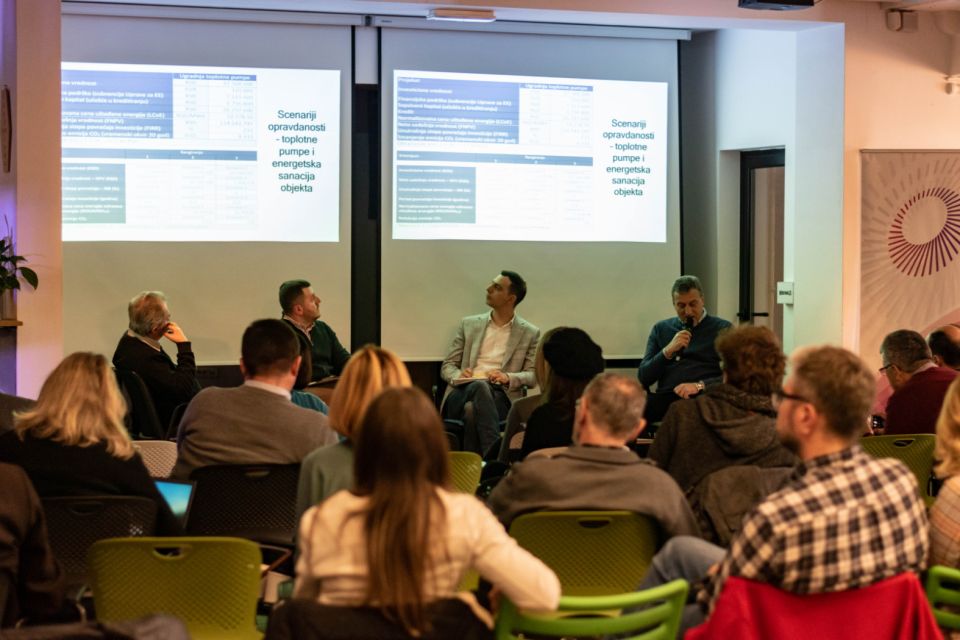The Belgrade Open School, in cooperation with the Renewables and Environmental Regulatory Institute (RERI), organized the first in a series of Green Talks within the Civil Society for Energy Transition project. The event was held at the Impact Hub on April 6 and brought together more than 60 representatives from local associations, the public sector, energy policy experts, activists and customer-producers.
The importance of NECP
The Integrated National Energy and Climate Plan (NECP) is an important document that determines the supply of energy to the economy, the involvement of citizens in the issue of energy transition, and will also affect whether and in what way we will help our most vulnerable fellow citizens to meet their needs for electricity and heat energy and provide for their basic needs.
Serbia has started the process of developing the NECP, and the purpose of this plan is to define the goals of the energy transition until 2030 with projections until 2050, namely for increasing energy efficiency and the share of renewable energy sources, goals for reducing greenhouse gas emissions gardens, but also to offer concrete policies and measures for their fulfillment. This document will be adopted by the end of the year.
Christopher Leigh from the British Embassy in Belgrade, which supported the realization of the "Civil Society for Energy Transition" project, pointed out that we should work harder to mitigate the consequences of climate change. Of great importance is the increase in financial packages, which must be five to ten times higher than the current amounts, and he also reminded of the existence of the Glasgow Pact, which foresees the adoption of more ambitious climate goals. Civil society organizations are a key partner in the fight for a just energy transition, together with government representatives, media and industry.
Energy policy should also take into account the role and capacities of energy managers in cities and municipalities in Serbia, environmental protection, air pollution, the state of individual combustion plants in the country, and the related energy poverty of residential areas, according to Slobodan Jerotić, energy policy expert.
Results of local partners
We also spoke with three representatives of local associations with whom we collaborate on this project - Toplica Marjanović from the Association of Young Researchers Bor spoke about what the results of the research show in the use of waste heat from the industrial production process for heating; Jovan Nešović from the organization New way spoke about the potential for tapping geothermal water and heat pumps for heating the facility - Agents Special Hospital, while Vladan Šćekić from the Center for Environmental Improvement spoke about how the position of the buyer-producer can be improved, as well as about what examples from the neighborhood show us.
Filip Blagojević, co-author of the Atlas of Good Energy, which represents a kind of energy identity card of several dozens of cities and municipalities in the Republic of Serbia and Bosnia and Herzegovina, presented data showing the total costs for energy and energy products in public buildings, for public lighting and costs covered by communal services, as well as CO2 emissions.
The Civil Society for Energy Transition project is financed by the British Embassy in Belgrade, and the Belgrade Open School implements the project in cooperation with the Renewables and Environmental Regulatory Institute (RERI) and seven other local partners, in the period from December 1, 2022. until March 31, 2024.
You can view the photo gallery from the event here.
Author of the photo: Belgrade Open School

 381 60 30 65 800
381 60 30 65 800






